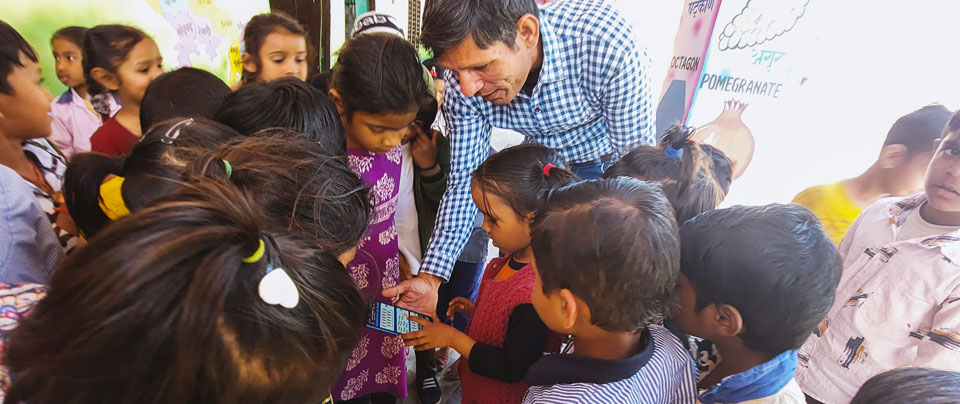Rocket Learning builds early childhood and foundational learning at scale by connecting the government system, teachers/ anganwadi workers and parents, and driving community change by systemically leveraging technology, media, and social incentives. Through our solution, we empower teachers/ anganwadi workers and parents as agents of change to deliver high-quality learning to 1 million children across 70,000 classrooms in 7 Indian states through its innovative, low-cost digital model that sends contextualized content in the local language via our “bot” over Whatsapp groups that function as vibrant digital communities. We then invite teachers/ anganwadi workers and parents to send us back their responses so that we can build continuous motivation through personalized real-time Nudges.
Impact and Future Development
Our solution has demonstrated strong learning gains (RL children are in the top 30% of their cohort), and is inherently cost-effective and scalable – our variable costs are 50c/child/year. Rocket Learning is committed to serving 5 million children and families in the next 3 years, and to create models that can transform early learning across the global south.
